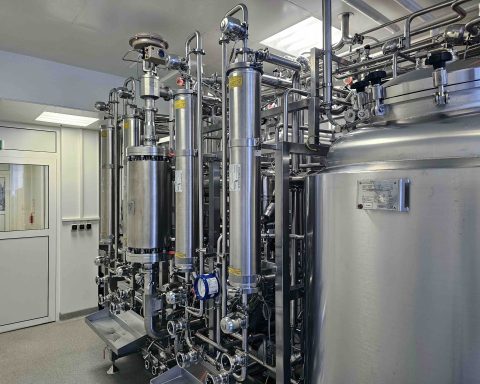As AI technology advances, it is quickly finding its way into the world of healthcare. The rise of machine learning and chatbots in healthcare is moving away from the traditionally doctor-centric model and towards a more patient-centric and automated process built on trust and data.
Healthcare is one of the few industries that’s heavily regulated. This makes the use of AI somewhat limited. However, as time goes on and the systems become more innovative, the use of AI in healthcare will increase. In this article, we’ll discuss how the future of healthcare AI depends on data.
Current Challenges in Healthcare
There are many challenges that healthcare AI faces as it attempts to revolutionize medicine. Some of these include:
1. Data Privacy & Security
Data breaches have long been an issue in the healthcare industry. The industry saw the theft/exposure of 189 million healthcare records between 2009-2018. It’s important to ensure that data used in healthcare AI is secure and private. Any solution must protect sensitive information from hackers or malicious actors.
2. Data Quality
It’s also important that the datasets used by healthcare AI be accurate and relevant. If not, then patients could be given incorrect diagnoses or prescriptions, leading to worse outcomes than if left untreated. There’s a requirement for quality training data for healthcare AI to perform better.
3. Cost
Healthcare systems worldwide struggle to understand how much money they can spend on new technologies like AI and machine learning without risking cuts elsewhere in their budgets.
When deciding whether or not to invest in AI solutions for their facilities, hospitals must weigh the cost-effectiveness against other competing priorities, such as staffing levels or capital improvements on their buildings or equipment.
Significant Benefits of Artificial Intelligence In Healthcare
Artificial intelligence (AI) is revolutionizing healthcare. Healthcare organizations are now using AI to streamline and improve patient care, including diagnosis, treatment, and prevention.
1. Data accuracy
One of the most significant issues in healthcare is the accuracy of datasets. The National Library of Medicine estimates that between 10% and 15% of all healthcare data has errors or omissions (misdiagnosis). These errors can lead to incorrect diagnoses, ineffective treatment plans, and misinformed decisions regarding patient care.
AI data collection can help improve patient outcomes by providing more accurate and personalized diagnostics and treatment. For example, AI can analyze a patient’s medical history and current symptoms to provide a more accurate diagnosis. AI can also be used to develop individualized treatment plans based on a patient’s specific condition.
2. Reduced errors
AI can also help to improve patient safety by reducing the risk of human error. For example, AI and ML algorithms can be used to monitor patients for potential complications and identify errors in medication administration. AI can also improve the accuracy of laboratory tests and diagnostic imaging.
3. Efficiency
AI can also help improve the efficiency of healthcare organizations. For example, AI can automate administrative tasks like scheduling appointments and billing. AI can also optimize hospital resources, such as beds and operating theaters.
Overall, AI has the potential to transform healthcare for the better. Healthcare organizations that embrace AI will be able to provide safer, more effective, and more efficient care to their patients.
Lessons learned – Implementing AI in healthcare
Artificial intelligence (AI) and ML have made significant inroads in health care in recent years.
- Hospitals and clinics use AI-powered chatbots to help patients schedule appointments and answer questions.
- Doctors are using AI to diagnose diseases and recommend treatments.
- Pharmaceutical companies are using AI to develop new drugs.
According to Statista’s 2021 survey on AI adoption in healthcare, nearly 19% of respondents say that AI models have been in production for the last 2 years. The report also found that more than 20% of respondents say that an AI model has been in production for 2+ years.
Implementing AI in healthcare can be challenging, but it can lead to better patient care and more efficient healthcare organizations. By learning from the lessons of AI implementation, we can make sure that the potential of AI is realized in health care.
Leveraging AI data collection can help improve the accuracy of collected data and also help the system improve its productivity with increased speed of training data collection.
Conclusion
Healthcare AI will remain a niche market for the foreseeable future, but its mature developments will likely trickle down to several smaller markets in some shape or form.
Healthcare needs more developers and investors to support technologies that advance patient care, and data is the key to unlocking these developments.
Author Bio
Vatsal Ghiya is a serial entrepreneur with more than 20 years of experience in healthcare AI software and services. He is the CEO and co-founder of Shaip, which enables the on-demand scaling of our platform, processes, and people for companies with the most demanding machine learning and artificial intelligence initiatives.








